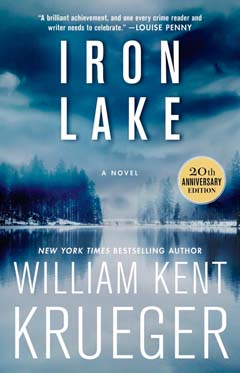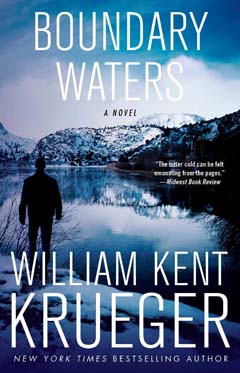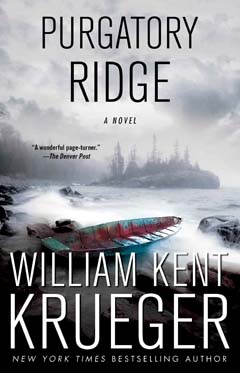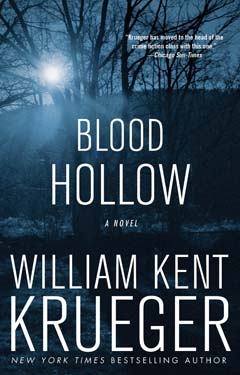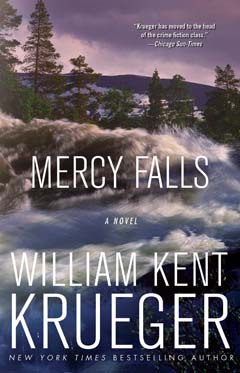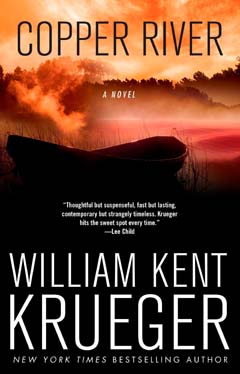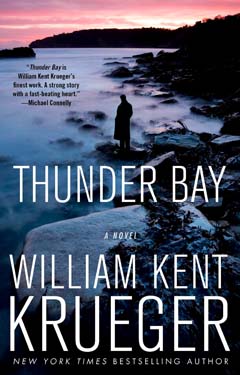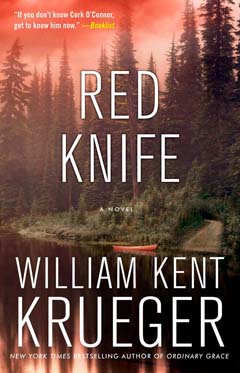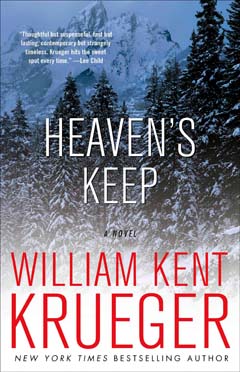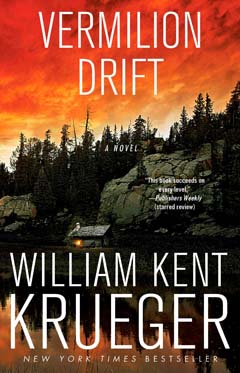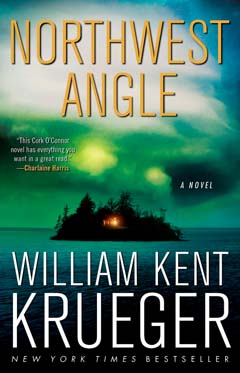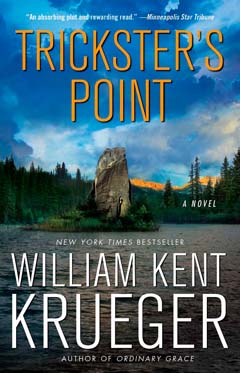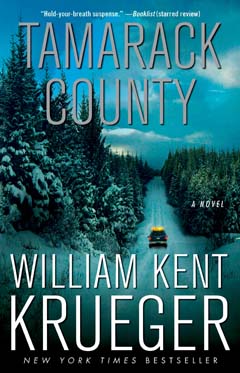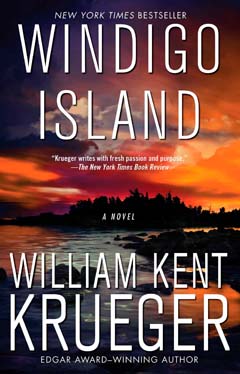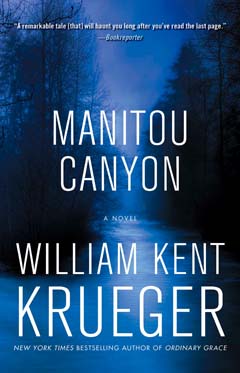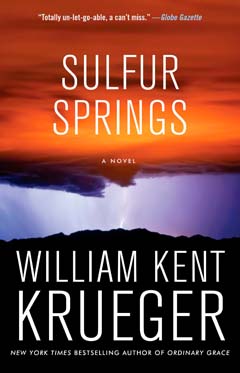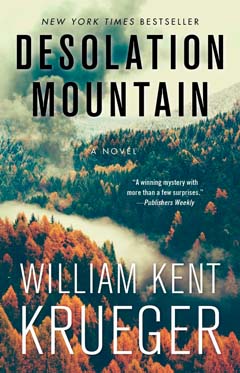A Cork O’Connor Mystery Novel – Book #14 | On Sale Now
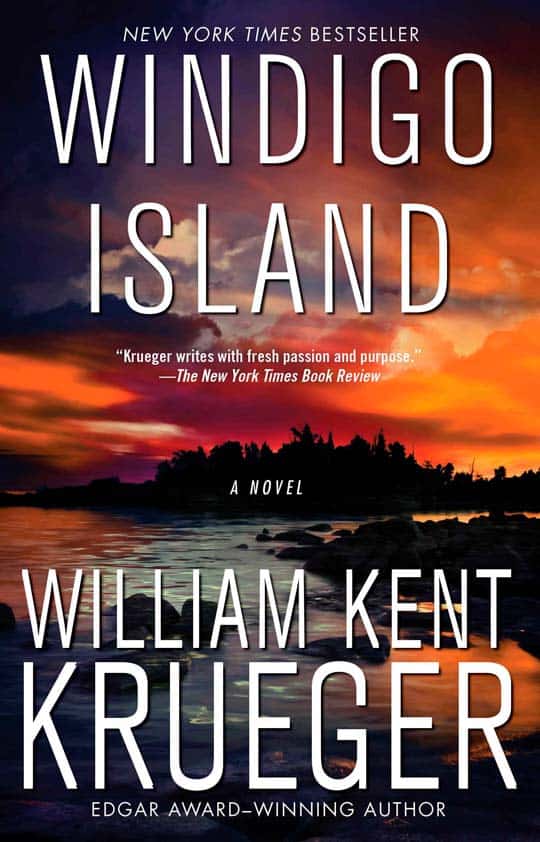
Order the Book
Atria Books Hardcover 2014, ISBN 978-1476749235
Atria Books Trade Paperback 2015, ISBN 978-1476749242
DESCRIPTION
Cork O’Connor battles vicious villains, both mythical and modern, to rescue a young girl in this riveting mystery.
When the body of a teenage Ojibwe girl washes up on the shore of an island in Lake Superior, the residents of the nearby Bad Bluff reservation whisper that it was the work of a deadly mythical beast, the Windigo, or a vengeful spirit called Michi Peshu. Such stories have been told by the Ojibwe people for generations, but they don’t explain how the girl and her friend, Mariah Arceneaux, disappeared a year ago. At the request of the Arceneaux family, private investigator Cork O’Connor takes on the case.
But on the Bad Bluff reservation, nobody’s talking. Still, Cork puts enough information together to find a possible trail. He learns that the old port city of Duluth is a modern-day center for sex trafficking of vulnerable women, many of whom are young Native Americans. As the investigation deepens, so does the danger.
Yet Cork holds tight to his higher purpose—his vow to find Mariah, an innocent fifteen-year-old girl whose family is desperate to get her back. With only the barest hope of saving her from men whose darkness rivals that of the legendary Windigo, Cork prepares for an epic battle that will determine whether it will be fear, or love, that truly conquers all.
PRAISE
“Krueger’s latest in the Cork O’Connor series set around Lake Superior and northern Minnesota is a punch-to-the-gut blend of detective story and investigative fiction… Krueger has written an investigative novel as blistering and crucial in its indictments of contemporary evil as The Jungle.”
—Booklist (starred review)
“Edgar winner Krueger highlights the vulnerability of Native American youth in his excellent 14th Cork O’Connor novel… Krueger paints a vivid picture of the sordid cycle of poverty, abuse, alcoholism, and runaway (or throwaway) children on the reservation, and reminds us of the evil of men all too willing to exploit the innocent.”
—Publishers Weekly (starred review)
“William Kent Krueger, who draws his stories from Indian life and legend in the rugged north woods of Minnesota, writes with fresh passion and purpose in Windigo Island about the local sex trade…Krueger has always written sympathetically about conditions on the reservations that make native children feel their lives are hopeless. Now he tells us that to human predators their lives are actually worthless.”
—The New York Times
“Krueger demonstrates his penchant and ability for finding deep, rich and new veins of stories from the seemingly inexhaustive mine of the rural and deceptively peaceful northern Minnesota and its surrounding environs.”
—Bookreporter.com
“Krueger at his page-turning best — but this time with a higher purpose.”
—Duluth News Tribune (Duluth, MN)
Krueger’s mysteries have always been deeply layered morality tales and this one contains the kind of social realism that I hope raises the consciousness of more than just his characters.”
—Milwaukee Journal Sentinel
“Krueger writes that Windigo Island is a story many in Minnesota’s Native community encouraged him to write. He did it right, because the novel earned starred reviews from Booklist and Publishers Weekly.”
—St. Paul Pioneer Press
“Krueger is skillful in many things — creating strong characters, building drama and conflict, braiding in Indian legend and spirituality, and spinning a good yarn — but sense of place may well be his forte. Duluth, Bayfield and North Dakota are all vividly described in this book and never has shabby downtown Duluth seemed so beautiful — and so dangerous.”
—StarTribune (Minneapolis, MN)
“William Kent Krueger writes with the rhythms of a natural born rural storyteller.”
—Toronto Star
EXCERPT
Chapter 1
Fear is who we are.
Cork’s old friend Henry Meloux had told him that. Though not quite in that way. And it was only part of what the ancient Ojibwe Mide had said. These were his exact words: In every human being, there are two wolves constantly fighting. One is fear, and the other is love. When Cork had asked which of the wolves won the battle, Meloux’s answer had been: The one you feed. Always the one you feed.
In his own life, Cork had known more than his share of fear. He carried scars from multiple gunshot wounds and was scarred, too, in ways that never showed on skin. He’d lost his wife to violence, lost friends in the same manner. More than once, men whose hearts were black holes of hate had targeted his children, and he’d come close to losing them as well. In all this, fear had sometimes been the wolf he’d fed. But as Meloux had wisely observed, love also shaped the human spirit, and it was this element of his being that Cork had consciously done his best to feed. In far more ways than fear, this wolf had shaped the man he was.
There were different kinds of fear, Cork knew, and some had nothing to do with violence. They were sought out purposely, sought for the sake of excitement, an adrenalin rush—a roller coaster ride, for example, or a ghost story. When he finally spoke with the three boys, he understood it was the desire for this kind of fear that had brought them to the cursed place the Anishinaabeg called Windigo Island.
When they set out that moonlit night, this was what the boys knew, what all the local kids knew: On Windigo Island, death came in the dark. It came in the form of an awful spirit, a cannibal beast with an insatiable craving for human flesh. Sometimes the beast swept in with the foul odor of carnage pouring off its huge body and the scream of a wild beast leaping from its maw. Sometimes it approached with stealth and wile and, in the moment before it ripped your heart from your chest, it cried your name in a high keening voice. It could be unpredictable, but one thing was certain: To set foot on Windigo Island in the dead of night was to call forth the worst of what the darkness there held.
They’d shoved off in their kayaks a few minutes before midnight from the marina on the shore of Lake Superior. It was late July, hot, and there was not a breath of wind. A gibbous moon had risen over the Apostle Islands. The water of Kitchigami was black satin, smooth and shiny. Behind them, the lights of the reservation town of Bad Bluff curved along the shoreline of that greatest of the Great Lakes, and the three boys paused in their paddling and turned back to admire the sequined hills. Then wordless, because it was a night and an excursion that called for silence, they pushed on, following the path the moonlight burned in silver across the water.
Ahead of them rose the island. It wasn’t much to look at in daylight. A rough circle a couple of dozen yards in diameter, all of it broken rock, an island so tiny it only appeared on detailed nautical charts. From its center rose a tall, ragged pine, a tree that had somehow managed to put down roots in that humping of stone and had held to it tenaciously through season after season of November gales. The Ojibwe believed the pine was a lightning rod of sorts, a beacon attracting the evil spirits of Kitchigami to that cursed island. Not just the windigo, but Michi Peshu, too, a monster that lived in the depths, a creature with horns and the face of a panther and razor sharp spikes downs it back and, some said, the body of a serpent. To the boys on that night, the tree looked like a black feather rising stiffly from the head of a skull almost completely submerged. They approached in silence, the only sound the dip of their double-bladed paddles and the burble of water as they stroked. They came at the island from the west and eased their kayaks up to the rocky shoreline. They disembarked one at a time, drew their crafts out of the water, and laid them carefully across the broken stone. The moonlight was intense, casting shadows of the ragged pine boughs across the boys like a black net, and they stood a moment, caught in the eerie mystique of the island.
Then one of the boys farted. The long, low growl broke the spell, and they laughed, released from the grip of their own fear.
“Dude,” one of them said. “You let the windigo know we’re here.”
“Dude,” the offending boy replied, “that was to keep him away.”
The third boy waved a hand in front of his face. “If that smell doesn’t drive him off, nothing will.”
“Okay, what now?” the first asked.
The third boy reached into the opening of his kayak and brought out a knapsack. From it he pulled a can of white spray paint. “We find the biggest rock that faces town.”
Which they did. It stood a good four feet high and had a nice flat vertical surface. In the daylight, it would have been dull gray, but in the shadow of the pine that night, it was as black as char.
The third boy knelt in front of the rock, as if praying, gave the can a good shake, then carefully sprayed his message: KYLE B + LORI D.
“How’s she going to see it?” the second boy asked.
“Binoculars, dude, binoculars. I told her I was going to come out here to do this thing and the hell with the windigo.”
The first boy stood back and admired the other’s work. “Awesome. Totally.”
And that’s when the wind hit.
On a lake like Superior, weather can develop suddenly. That night the wind came out of nowhere, sweeping in from the vast open water. The limbs of the pine began flailing wildly and waves rose up and crashed against Windigo Island and ate the rocks. No storm cloud obscured the stars or the unblinking eye of the moon, nothing to account for the phantom torrent of air that carried with it a frigid cold churned up from the depths. There was something in this wind that was terrible, something unnatural, and the boys could feel it. They stood frozen, feeding the wolf of fear suddenly prowling inside them.
“Hey, you guys,” the first boy hollered over the cry of wind. “Did you hear that?”
“What?” the third boy shouted.
“I heard it,” the second boy called back. His voice was a high screech because, in his terror, his throat had closed nearly shut. He stared wide-eyed at the third boy. “Your name. It called your name.”
The third boy turned from his companions, turned his face into that furious wind and listened. He didn’t hear what they’d heard, but he saw something that made his blood run cold. In the black roil of the lake, just beneath the surface, a figure, luminescent white under the glare of the moon, swam toward them.
“Oh, God,” the first boy cried. “Michi Peshu!”
He spun and fled, stumbling over the broken rocks toward his kayak. The second boy was close on his heels. The third boy turned, too, but caught his foot in a crevice between two stones and his ankle gave in an agonizing twist. He went down with a cry of pain that was snatched away by the wind. His companions didn’t hear. They were already on the water, already digging the blades of their paddles into the swells. The boy cried out for them, but they didn’t look back.
Then he heard it. What they’d heard. His name. His name called in a high keening voice that was carried inside the howl of wind. And he saw the white form sliding toward him in the black water, the monster Michi Peshu coming, and he watched it slither onto the rocks, and he knew a fear such as he’d never known before.
The wolf inside him opened its hungry mouth and prepared to feed.

